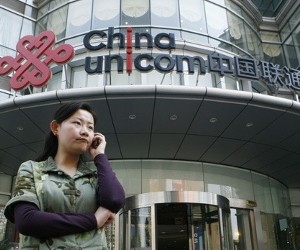China Unicom, one of China's three major mobile communications carriers, has attributed the drop in its mobile communications subscribers to the saturated mobile market, the government’s policy to reduce subsidies for subscribers, and the requirement asking subscribers to register their true identity.
The Century Business Herald cited industry insiders as saying that China Unicom's subscribers dropped 3.27 percent to 289.3 million due to a combination of a burst in the market bubble and bad policy.
Unicom said in a press conference on Aug. 11 that the decline in subscribers may be attributed to saturation of the mobile communications market, the government policy reducing subsidies, and the new requirement for subscribers.
According to the report, China Telecom and China Mobile, China Unicom's two main competitors, managed to increase the number of their subscribers by 5.82 million and 8.6 million, respectively, in the first six months of the year.
Statistics from the Ministry of Industry and Information Technology (MIIT) showed that the country's mobile communications market has become saturated, with the current mobile phone penetration rate already in 10 provinces at 100 percent as of early 2015. In the first half, the number of mobile subscribers increased by five million, a tremendous growth compared to the past number.
"The growth figures in 2103 and 2014 were partially bloated," one industry insider noted, adding that "some dealers used to open hundreds or even thousands of accounts for their staffers, at very low rates, in order to attain sales targets assigned to them," the paper said.
But when the MIIT issued the regulation requiring the use of real identities for application of mobile phone accounts, the practice came to an end in July 2013.
In 2014, the state-owned Assets Supervision and Administration Commission required the three carriers to reduce their marketing costs, which forced them to slash or even remove subsidies for subscribers.
The report said that the drop in China Unicom's subscribers shows the challenges that the company is facing in its drive for 4G service. In the first half of 2015, the number of 3G and 4G subscribers for the company only increased by 8.68 million, which is lower compared to China Telecom's net increase of 12.37 million. During the same period, China Mobile's 4G subscribers increased by 80 million.
The paper said that insiders blamed China Unicom's lagging performance in 4G service on its failure to timely focus its investments from 3G to 4G.



























